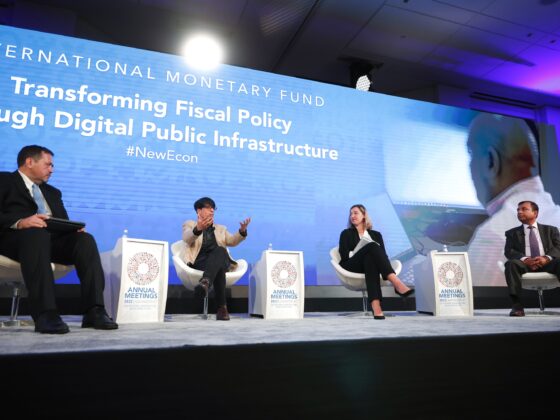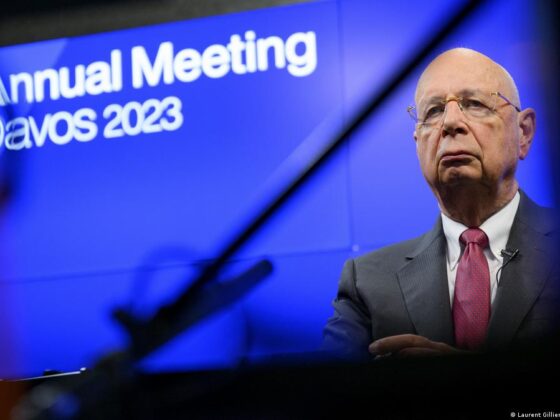In an article that appeared in the French media titled: “Private Jets, Transport, Heating, Food… What If We Set Up A “Carbon Card”?

The article states that the introduction of a “carbon credit card” and a Carbon rationing quota could put rich and poor on an equal footing, regardless of whether they consume CO2.
The European Union already has a carbon consumption quota system, but it only applies to large industries. Through the Kyoto Protocol of 2005, this carbon market mechanism allocates a certain quota of possible CO2 emissions, beyond which it must be purchased from another company.
“The idea is to define a total CO2 emission ceiling each year and, from there, a quota for each individual”. – According to Arnaud Passalacqua, researcher at the Paris School of Urban Planning’s Urban Planning Laboratory, explains.
“In rural areas, because we are dependent on the automobile, the quota will be higher.”
The “carbon card” could for example take the form of a smart card, like a bank card: A litre of fuel would cost a certain number of points, a Lyon-Madrid plane ticket another amount, etc.
What would happen once the quota was exhausted? It would no longer be possible to consume except to have to pay. And like the European carbon market, it would be possible to buy and resell “points”.
According to Arnaud Passalacqua Professor at the Paris School of Urban Planning who is helping to develop such a system in France, it will apply to modes of travel, such as car and plane and it should be “limited and not speculative.”
A system like this has never been implemented before. Currently the so-called carbon taxes in France must convince people to drive less by taxing fuels. “But it is socially unequal and does not allow an overall emission ceiling: As long as we have money, we can emit CO2”, said Arnaud Passalacqua.
The new system should “congratulate” those who try since they could resell their “surplus” (40% of French people have never flown, for example).
The French national low-carbon strategy sets energy transition objectives and plans to achieve carbon neutrality by 2050. These carbon cards would allow everyone’s quota to be revised downward each year to achieve this goal.
Arnaud Passalacqua is involved on several research projects such as this one “Towards a local experiment in travel-based carbon rationing”.
The Mobile Lives Forum is exploring the idea of carbon rationing as an alternative to carbon taxing and the project states that: “Rationing would have at least two advantages over taxation: setting a national cap on CO2 emissions and giving each French person the right to emit the same amount of CO2, regardless of their financial means.”
Specifically, the completed research states: “Such allowances applied to polluting travel could take the form of a carbon card and be distributed according to democratically defined criteria. Would such a proposal be possible, fair and desirable?”
Similar Initiatives:
This idea has already been tested, as in the recent case of Lahti, a city in Finland that rewarded residents who voluntarily managed to keep their urban trips within a certain quota.

Finland, in Lathi, conducted an experiment in 2020. Participants were able to monitor their carbon consumption through a mobile application.
Instead of sanctioning or blocking those who exceeded the “emissions” budget, the municipality offered vouchers and transport tickets to those who did not exceed it.
How did it turn out? Based on the study, participants had reduced their movements compared to the others.
During the experience, 36% also felt they had more sustainable mobility.

The Docomy-Mastercard partnership enables banks to display to their customers the carbon footprint of their purchases. Doconomy calculates the carbon footprint of each customer from their banking transactions in Sweden.
With “DO Black”, it will be possible to block purchases once a certain emissions threshold has been reached. Besides this carbon tracking credit card, Doconomy has also launched a service for brands to calculate their product’s carbon footprints. It’s called the 2030 calculator.

And more recently the Aspiration Carbon Credit Card – with their strap line – “Go carbon neutral. Get rewarded. Track your progress each month in the app to eradicate your footprint.”
Alibaba Group president J. Michael Evans boasts at the World Economic Forum about the development of an "individual carbon footprint tracker" to monitor what you buy, what you eat, and where/how you travel. pic.twitter.com/sisSrUngDI
— Andrew Lawton (@AndrewLawton) May 24, 2022
At this year’s Davos event we also had J. Michael Evans – President of Alibaba Platform declare “We are developing through technology an ability for consumers to measure their own carbon footprint, where they travel, what are they eating.”
The European Green Pass / Vaccine Passports and the incoming European Digital Identity (EID) will lead towards a European Social Credit System, and it will be tied to Carbon Taxes. – @CristianTerhes pic.twitter.com/X5j3B28bbP
— Sikh For Truth (@SikhForTruth) January 22, 2022
The EU Digital Identity wallet may open the door to social credit style carbon taxes. As the EU Commission moves forward with digital identity wallets, MEP Cristian Terhes is worried about the potential drift in EU plans to cut its carbon footprint by 55% by 2030.
Many like Cristian Terhes believe that the the incoming European Digital Identity (EID) will lead towards a European social credit system, that “Will be tied to Carbon Taxes.”
Watch Senator Malcolm Roberts @MRobertsQLD Dropping Absolute Truth Bombs Connecting the Climate Agenda Hysteria With The Digital Identity Control Agenda.pic.twitter.com/GP1RyIJddJ
— Sikh For Truth (@SikhForTruth) July 30, 2022
“The dream of micromanaging individuals carbon emission hinges on the soon to be passed digital identity bill.” – Said @MRobertsQLD
There is widespread belief that digital ID schemes will be linked to individuals’ carbon emissions once they are implemented fully. In the future, consumers could well be micromanaged and nudged to buy the right things, congratulated, and punished for buying the wrong things. The climate is being used as an excuse for mass social control.













